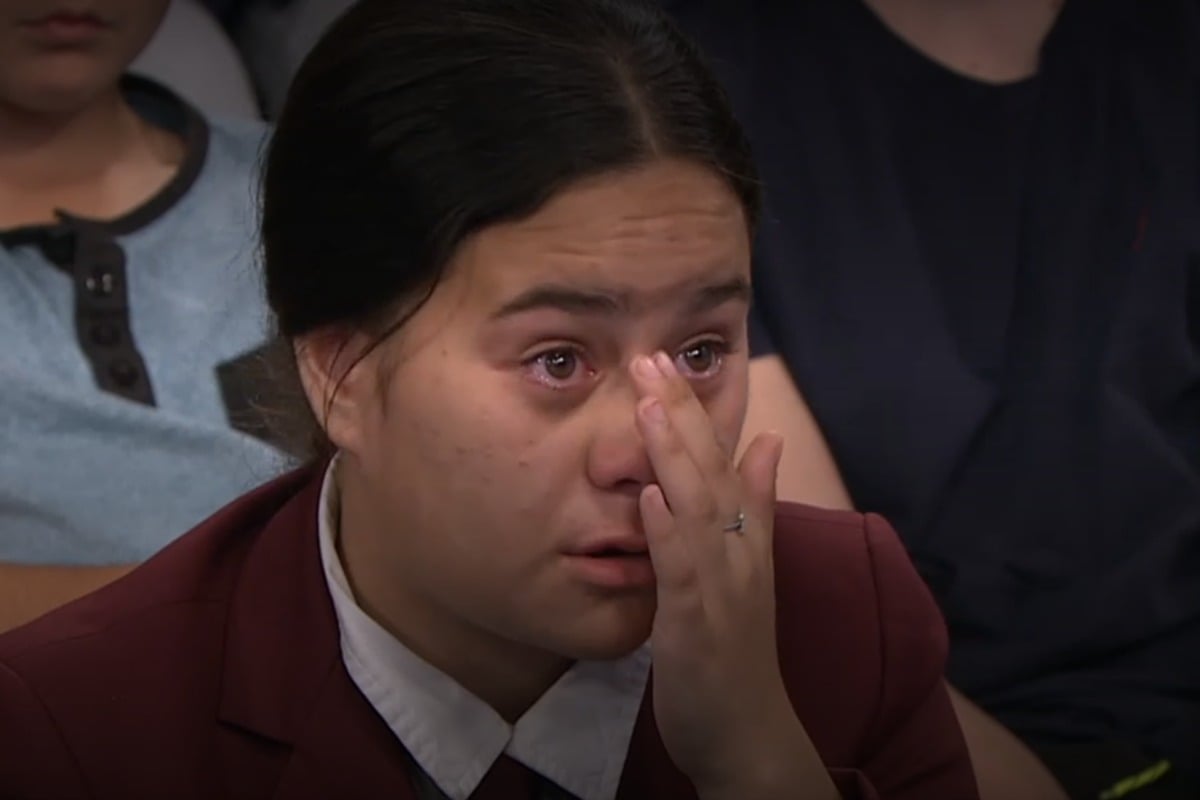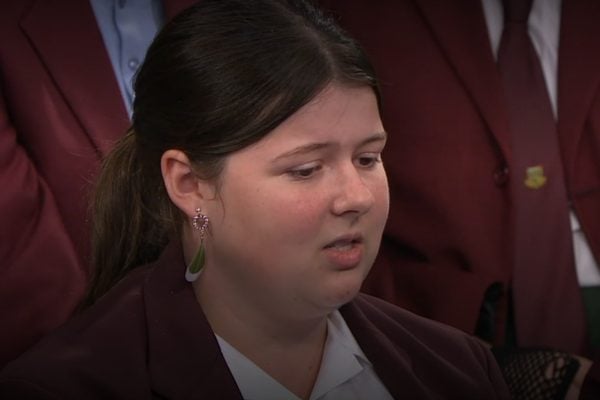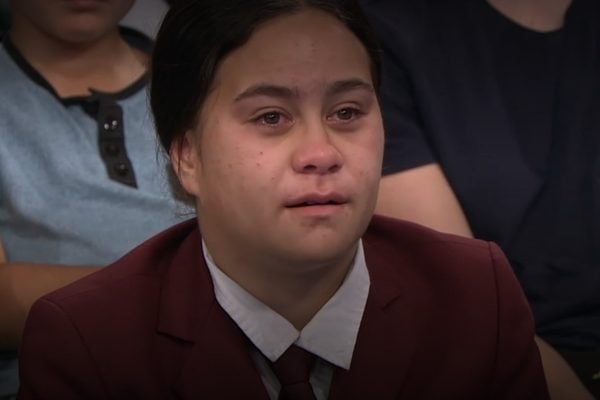
It’s a statistic that’s sure to concern any parent.
In Australia, one in four children have experienced bullying.
That’s the equivalent of an entire classroom of bullied students per school.
On tonight’s episode of SBS Insight, a number of Australian students sat down to discuss how some schools are attempting to reduce bulling in the classroom and the playground.
Australian student Emily explains why she was a bully on SBS Insight. Post continues below…
But it wasn’t just victims of bullying who contributed to the conversation.
The news program also spoke to the bullies themselves.
One student from Nepean High School, Emily, described how she became a bully as a matter of survival at her school.
“At my old school, there was a culture of bullying and putting people down and roasting people,” Emily explained.
“I don’t like putting others down but I felt like if I didn’t join in and I didn’t conform, then I would be next,” she continued.
“I felt like I had to become this other person in order to protect myself and I feel as though I was a bully to those around me. I hated myself so much for what I was doing but I really did think that it was what I had to do to survive.”




Top Comments
I think it's helpful to hear the reasons people bully, if we know why it happens we have a better chance of stopping it.
No matter what reason they have for being a bully it is still wrong. There is not need or relevance to hear their justification. Bullying in school can have long term ramifications in a child's life. These girls will just have to live with the guilt for the rest of their lives. It doesn't matter how hard they have it or if they are from a low socioeconomic family or whatever - it is still wrong. No need to hear their side of the story.
I felt particularly sad for the boys bullied by a girl.
They can't fight back, toxic masculinity and believe all girl.
They had no chance of a fair outcome.
It doesn’t hurt to understand and try and address the issue through the bully rather than placing the responsibility on the victim
Perhaps finding out why they did it will help to stop it, though.
While I agree with most of what you said, I disagree with the second part, finding out why is important.
How can people work to stop this stuff happening if they don't know why people are doing it in the first place?